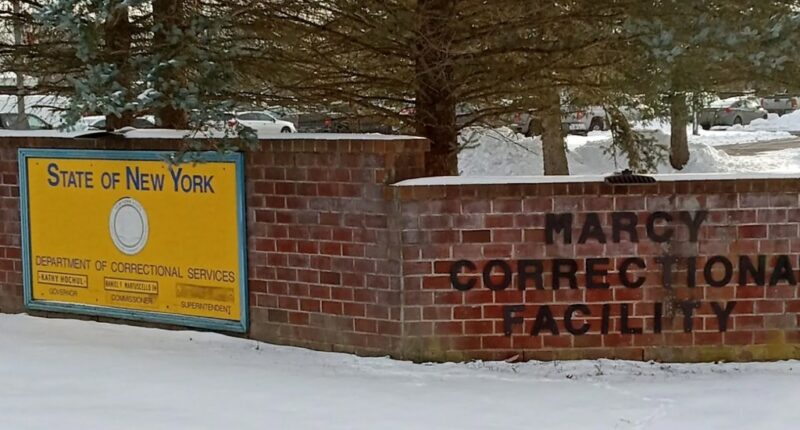Share this @internewscast.com

It’s imperative that Governor Hochul takes decisive action to shut down Marcy Correctional Facility, a prison plagued by ongoing tragedies and systemic issues that outweigh any potential benefits of keeping it operational.
Tragedy struck last week when Imam Abdallah Hadian, a civilian conducting religious services at Marcy, took his own life within the prison’s administration building, an act witnessed by others, as confirmed by the state Department of Corrections and Community Supervision (DOCCS). The Public Employee Federation (PEF) noted that this incident marks the fourth suicide of a PEF member at DOCCS in just two years.
Before December 9, 2024, the conditions at Marcy Correctional Facility were not widely known. However, the brutal killing of Robert Brooks, who was strangled and beaten by guards in the infirmary exam room, changed that. The incident, captured on body-worn cameras, reached national headlines, resulting in the conviction of two officers for murder.
These violent events have indelibly stained Marcy’s reputation. It’s hard to fathom the trauma of returning to such a workplace. The past year’s events alone provide a compelling case for closing the facility, but there are additional reasons to consider.
The Correctional Association of New York (CANY) inspected Marcy two years before Brooks’ death, as part of its oversight responsibilities, and reported widespread physical abuse by the staff. Despite urging the state to investigate these grave allegations, any measures taken have proven inadequate.
Upon revisiting Marcy in July, CANY uncovered deplorable conditions in the Residential Mental Health Unit (RMHU), leading to significant distress among the 90 residents. They found evidence of self-harm and suffering among these vulnerable individuals, alongside unclean environments marked by incidents of “throwing” feces. A civilian counselor highlighted the challenges in recruiting staff willing to work under such dire circumstances.
According to data CANY obtained from the state Office of Mental Health, two incarcerated people died by suicide in that unit in 2024, despite frequent rounds by correctional officers. On Sept. 8, attorneys for mentally ill people held in the Marcy RMHU separately filed a lawsuit against DOCCS, citing “horrific” and “inhumane” conditions.
During our visit to Marcy, we spoke with employees who expressed despair that their jobs at the prison were “destroying” their home lives. In the week preceding our visit, eight staff members had resigned. We spoke with incarcerated people who said that, while the violence endemic to the facility’s culture had subsided thanks to proper use of body-worn cameras, staff shortages left basic services at the prison barely functioning.
Facility administrators told us that of the 322 correctional officer positions Marcy was allocated, there were 92 vacancies and 40 officers out on workers’ compensation or other leave. In fiscal year 2024, Marcy had the highest workers’ compensation incident rate of all 42 state correctional facilities. At the end of 2024, Marcy had the third highest unusual incident rate out of all correctional facilities, and the highest among all medium security facilities.
Mid-State Correctional Facility, which is directly across the street from Marcy, had 201 correctional officer vacancies and 96 officers out on leave in September; they should have 498 officers working. In the event of Marcy’s closure, the 190 correctional officers showing up to work at Marcy could be reassigned to Mid-State, which would alleviate severe staff shortages plaguing both facilities and bring much-needed relief to another prison that has seen its share of tragedy this year.
For officers seeking different options, Mohawk Correctional Facility, 12 miles to the west, had 135 correctional officer vacancies in April. The correctional officers’ union has historically argued against prison closures as a solution to a staffing crisis, positing that members would rather resign than work at a prison farther from home. In this case, being reassigned to Mid-State or Mohawk would hardly change anyone’s commute.
The fiscal year 2026 state budget authorized the governor to close as many as three prisons. In 2024, she approved the closure of Great Meadow Correctional Facility, which had earned the reputation as the most abusive prison in the state. Once again, she has the opportunity to shut down a site of suffering and despair. We urge her to take it.
Scaife is executive director of the Correctional Association of New York.

















